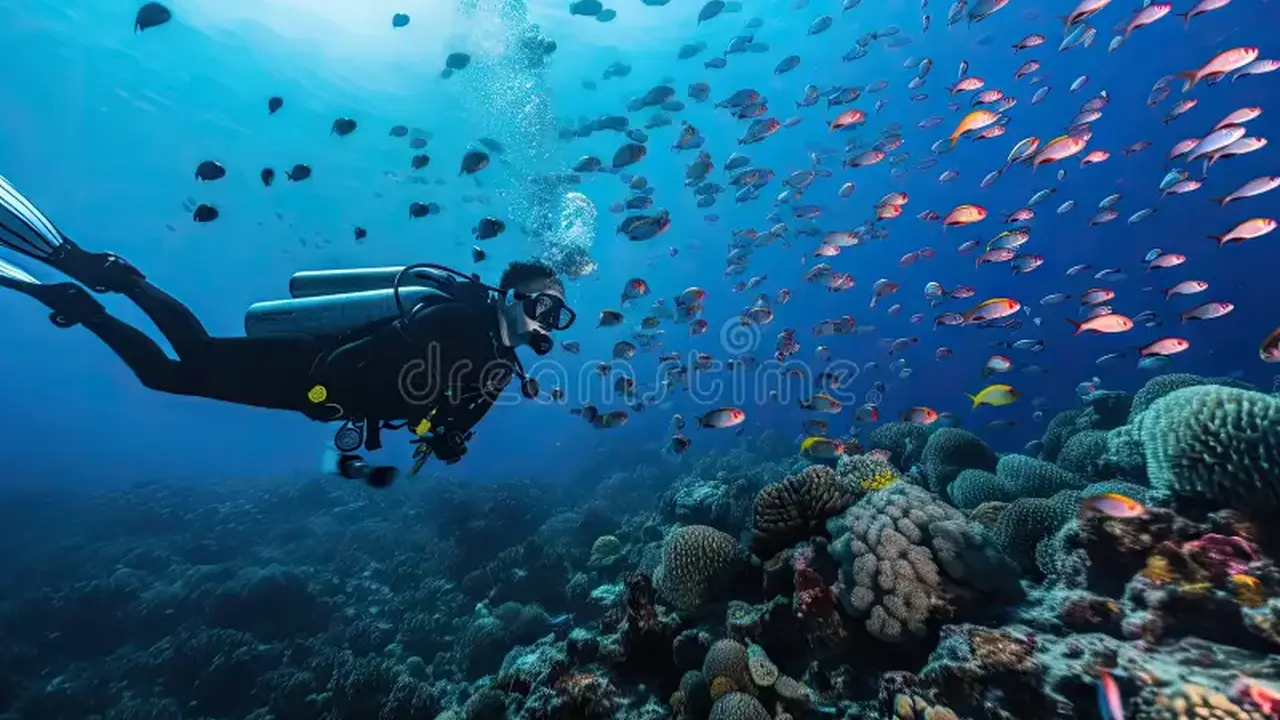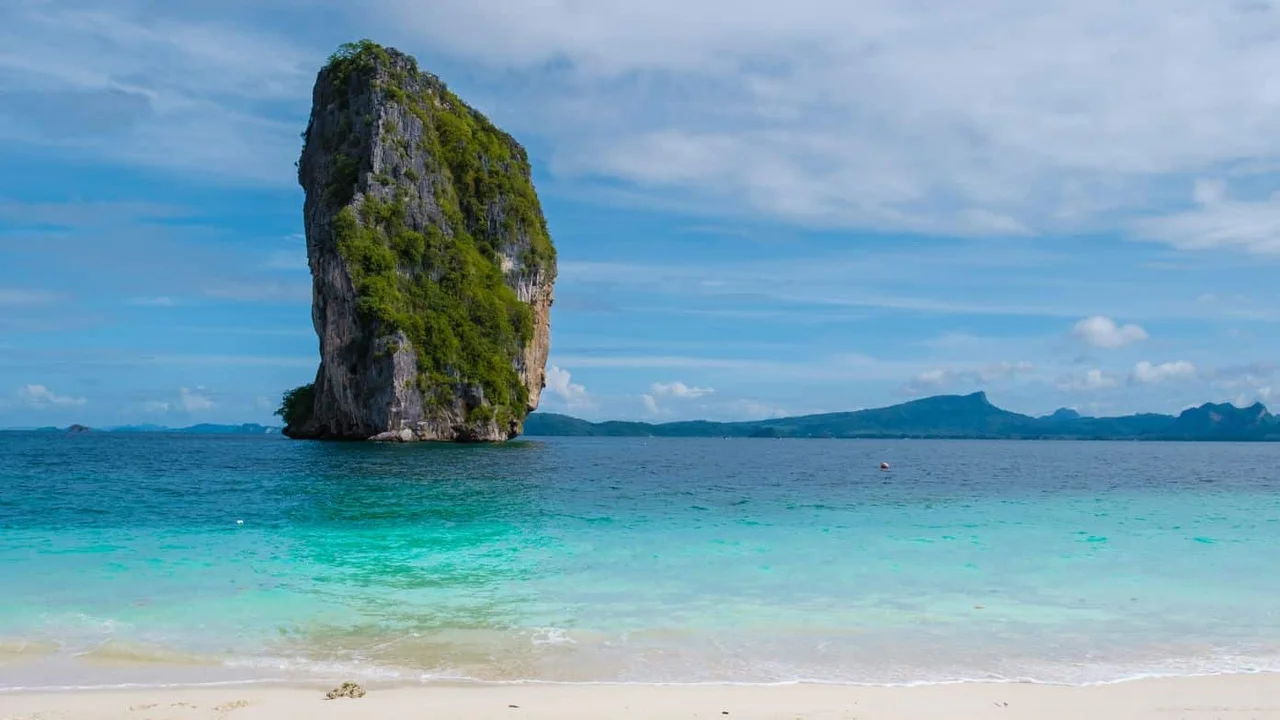Scuba Diving in Thailand: Exploring the Underwater World

Thailand Scuba Diving Best Locations and Dive Sites
Okay, so you're thinking about diving in Thailand? Awesome choice! Thailand's got some of the most incredible dive sites in the world, from the crystal-clear waters of the Similan Islands to the vibrant reefs around Koh Tao. Let's break down some of the top spots:
- Similan Islands: Seriously, these islands are legendary. Expect incredible visibility, tons of marine life, and stunning coral formations. It's a bit further out, so you'll likely need to take a liveaboard trip, but trust me, it's worth it. Think manta rays, whale sharks (if you're lucky!), and schools of colorful fish.
- Koh Tao: This is the place to be if you're on a budget or just starting out. Koh Tao's known for its affordable diving courses and easy access to a variety of dive sites. You'll find everything from shallow coral gardens perfect for beginners to deeper wrecks for more experienced divers. Plus, the island itself is super chill with a great backpacker vibe.
- Koh Phi Phi: Made famous by "The Beach," Koh Phi Phi also boasts some amazing diving. Expect dramatic underwater landscapes, limestone cliffs, and plenty of sharks (harmless reef sharks, mostly!). Maya Bay is often crowded, but the diving around the other islands is fantastic.
- Richelieu Rock: Often called the "Jewel of the Andaman Sea," Richelieu Rock is a seamount teeming with life. This is a must-dive for experienced divers. Think incredible visibility, soft corals, and a huge variety of marine creatures, including whale sharks, barracuda, and seahorses.
- Hin Daeng and Hin Muang: Located in the southern Andaman Sea, these sites are known for their impressive walls, strong currents, and pelagic life. Expect to see manta rays, sharks, and schools of fish. These sites are best suited for experienced divers.
Essential Scuba Diving Gear Recommendations for Thailand
Alright, let's talk gear. You can rent pretty much everything you need in Thailand, but if you're a serious diver, you'll probably want to invest in your own kit. Here are some recommendations:
- Mask, Snorkel, and Fins: These are the basics. A good fitting mask is crucial (leakage is no fun!). Look for a mask with a low volume for easier clearing. For fins, consider split fins for less effort or traditional paddle fins for more power. Snorkels are pretty straightforward, but get one with a purge valve for easy clearing.
- Wetsuit: The water's warm in Thailand, but you'll still want a wetsuit for protection from the sun, jellyfish stings, and scrapes. A 3mm wetsuit is usually perfect. Consider a shorty wetsuit for warmer waters or a full wetsuit for cooler dives or added protection.
- Dive Computer: This is a must-have for any serious diver. It tracks your depth, bottom time, and ascent rate, helping you stay safe and avoid decompression sickness. Look for a computer with a clear display and easy-to-use interface.
- BCD (Buoyancy Compensator Device): This is your life jacket underwater. It allows you to control your buoyancy and stay at the desired depth. Look for a BCD that fits well and has plenty of pockets for accessories.
- Regulator: This is what delivers air from your tank to your mouth. A good regulator will provide smooth, consistent airflow at all depths. Make sure it's properly serviced and maintained.
Scuba Diving Gear Product Comparison and Pricing in Thailand
So, you're ready to buy some gear? Here's a quick comparison of some popular options, along with estimated prices in Thailand (prices can vary depending on the shop and location):
Masks
- Scubapro Spectra: A popular choice for its comfortable fit and wide field of vision. Price: 2500-3500 THB
- Cressi Calibro: A low-volume mask with a unique anti-fog system. Price: 2000-3000 THB
- Atomic Aquatics Venom: A premium mask with exceptional clarity and a comfortable fit. Price: 4000-5000 THB
Fins
- Scubapro Seawing Nova: A powerful and efficient split fin. Price: 4000-5000 THB
- Mares Avanti Quattro Plus: A classic paddle fin with excellent thrust. Price: 3000-4000 THB
- Aqualung Slingshot: A comfortable and powerful fin with a unique power band. Price: 3500-4500 THB
Dive Computers
- Suunto Zoop Novo: A simple and reliable entry-level dive computer. Price: 8000-10000 THB
- Shearwater Peregrine: A more advanced computer with a clear color display and air integration. Price: 15000-20000 THB
- Garmin Descent Mk2i: A premium dive computer with GPS, heart rate monitoring, and air integration. Price: 40000-50000 THB
BCDs
- Scubapro Litehawk: A lightweight and comfortable BCD perfect for travel. Price: 12000-15000 THB
- Aqualung Zuma: Another lightweight and comfortable BCD with integrated weight pockets. Price: 10000-13000 THB
- Cressi Travelight: A compact and lightweight BCD with a streamlined design. Price: 9000-12000 THB
Regulators
- Scubapro MK25 EVO/S620 Ti: A high-performance regulator with excellent breathing performance. Price: 25000-35000 THB
- Aqualung Legend LX Supreme: A popular regulator known for its smooth and reliable performance. Price: 20000-30000 THB
- Atomic Aquatics T3: A top-of-the-line regulator with exceptional breathing performance and durability. Price: 40000-50000 THB
Remember to try on gear before you buy it to ensure a proper fit. Many dive shops in Thailand offer rental options so you can test out different gear before making a purchase.
Scuba Diving Safety Tips and Best Practices in Thailand
Safety first, always! Here are some essential safety tips for scuba diving in Thailand:
- Get Certified: If you're not already certified, take a scuba diving course from a reputable organization like PADI or SSI.
- Dive Within Your Limits: Don't push yourself beyond your skill level or experience.
- Check Your Gear: Always inspect your gear before each dive to ensure it's in good working order.
- Dive with a Buddy: Never dive alone. Always dive with a buddy and stay within sight of each other.
- Monitor Your Depth and Time: Keep track of your depth and bottom time to avoid decompression sickness.
- Ascend Slowly: Ascend slowly and make safety stops at 5 meters for 3-5 minutes.
- Stay Hydrated: Drink plenty of water before and after your dives.
- Be Aware of Currents: Be aware of currents and plan your dives accordingly.
- Respect Marine Life: Don't touch or disturb marine life.
- Listen to Your Dive Instructor or Guide: They are experienced and know the local conditions.
Thailand Scuba Diving Liveaboard vs Day Trip Options
You've got two main choices when it comes to diving in Thailand: liveaboards or day trips. Let's weigh the pros and cons:
Liveaboards
Liveaboards are basically floating hotels that take you to the best dive sites. They're perfect for serious divers who want to maximize their time underwater. You'll typically spend several days or even a week on board, diving multiple times a day.
Pros:- Access to remote dive sites
- More dives per day
- All-inclusive (food, accommodation, diving)
- Social atmosphere
- More expensive
- Less flexibility
- Can be crowded
Day Trips
Day trips are a great option if you're short on time or want to explore other parts of Thailand as well. You'll typically take a boat out to a few dive sites and return to shore in the evening.
Pros:- More affordable
- More flexibility
- Good for beginners
- Limited dive sites
- Fewer dives per day
- Can be crowded
Best Time to Go Scuba Diving in Thailand Weather Conditions and Visibility
Timing is everything! The best time to go scuba diving in Thailand depends on which coast you're visiting:
- Andaman Sea (Similan Islands, Koh Phi Phi, Richelieu Rock): The best time to dive is from November to April, when the weather is dry and the visibility is excellent.
- Gulf of Thailand (Koh Tao, Koh Samui, Koh Phangan): The best time to dive is from March to September, when the weather is calm and the visibility is good.
Avoid diving during the monsoon season (May to October in the Andaman Sea, October to February in the Gulf of Thailand) as visibility can be poor and conditions can be rough.
Underwater Photography Tips for Thailand Diving
Thailand's underwater world is incredibly photogenic! Here are some tips for capturing stunning images:
- Use a Waterproof Camera Housing: Protect your camera from the water.
- Get Close to Your Subject: Water absorbs light, so the closer you are, the better.
- Use a Wide-Angle Lens: Capture the vastness of the underwater landscape.
- Use a Strobe or Flash: Add color and clarity to your photos.
- Shoot in RAW Format: This gives you more flexibility when editing your photos.
- Practice Your Buoyancy: Stable buoyancy is essential for taking sharp photos.
- Be Patient: Wait for the perfect moment to capture the shot.
- Respect Marine Life: Don't disturb or harass marine life.
Responsible Scuba Diving and Marine Conservation in Thailand
Let's keep Thailand's reefs beautiful! Here's how to be a responsible diver:
- Don't Touch Anything: Avoid touching corals, sponges, or other marine life.
- Control Your Buoyancy: Good buoyancy prevents you from damaging the reef.
- Don't Feed the Fish: Feeding fish can disrupt their natural behavior and harm the ecosystem.
- Dispose of Trash Properly: Don't leave any trash behind.
- Choose Eco-Friendly Dive Operators: Support dive operators that are committed to sustainability.
- Report Damage: If you see any damage to the reef, report it to the local authorities.
Local Culture and Etiquette when Scuba Diving in Thailand
Remember to be respectful of the local culture when diving in Thailand:
- Dress Modestly: When visiting temples or other religious sites, dress modestly.
- Remove Your Shoes: Remove your shoes before entering temples or private homes.
- Be Respectful of Monks: Monks are highly respected in Thai society.
- Avoid Public Displays of Affection: Public displays of affection are generally frowned upon.
- Learn a Few Basic Thai Phrases: Knowing a few basic Thai phrases will go a long way.
- Bargain Respectfully: Bargaining is common in Thailand, but do it respectfully.
- Be Patient: Things may not always run on time in Thailand, so be patient.
So there you have it! Everything you need to know about scuba diving in Thailand. Get ready to explore the incredible underwater world and have an unforgettable adventure!
:max_bytes(150000):strip_icc()/277019-baked-pork-chops-with-cream-of-mushroom-soup-DDMFS-beauty-4x3-BG-7505-5762b731cf30447d9cbbbbbf387beafa.jpg)






